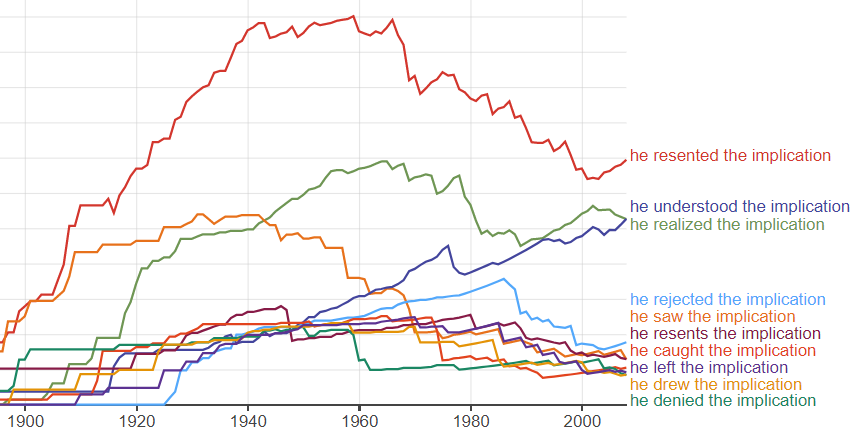I did not make an implication, I made a statement, and I made the statement based on the testimony of the president of the corporation.
-
1Idiomatically, native speakers would almost never make an implication - we normally just imply [something].– FumbleFingersCommented Mar 19, 2020 at 15:18
-
2@FumbleFingersReinstateMonica Instead of saying "Anthony made an implication that ...", native speakers would just say "Anthony implied that ...", is my understanding correct?– PutBereCommented Jun 20, 2020 at 6:15
-
@PutBere: That is exactly what I meant, yes.– FumbleFingersCommented Jun 20, 2020 at 11:46
-
There's a well-known "conversation" that goes something along the lines of A: Do what I say, or bad things will happen. B: Is that a threat? A: That's not a threat, it's a promise. Where it's also perfectly natural for B to say Are you threatening me? - but you'll probably never come across any version of this interaction where A: echos that continuous form back by replying I'm not threatening you, I'm promising you.– FumbleFingersCommented Jun 20, 2020 at 11:55
-
...equally, B: might feasibly say Are you making a threat? But A would never say I'm not making a threat, I'm making a promise.– FumbleFingersCommented Jun 20, 2020 at 11:58
2 Answers
The meaning here is this one
Macmillan "implication"
"something that you suggest is true, although you do not say it directly"
The person speaking in that quote has been accused of making an implication, that is, implying something indirectly. His answer is that he wasn't making an implication, but a direct statement.
-
Is there a way to somehow rephrase it? Or is there a synonym for "make" here? Commented Mar 19, 2020 at 14:54
-
1One could say simply, "I was not implying [anything], I made a statement...". (By the braces, I mean that "anything" is optional.) Commented Mar 19, 2020 at 14:59
In the context of conversations, an implication refers to some "assertion" that's not explicitly stated, but which a speaker / writer would expect the audience / reader to understand anyway.
Here's a potentially useful NGram...
...from which you'll see that all the common verbs identifying the relationship between subject and object involve him receiving the implication - none of them are about him producing an implication.
TL;DR: Idiomatically, native speakers almost never make an implication - we normally just imply [whatever implication is meant].
-
Thank you. How about make an implication,make any implication– PutBereCommented Jun 20, 2020 at 23:09

